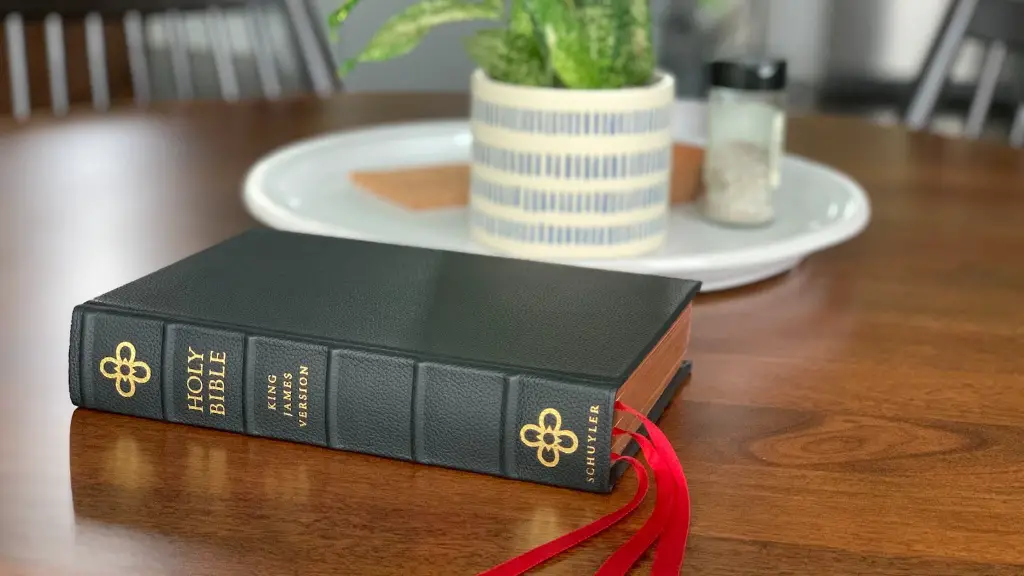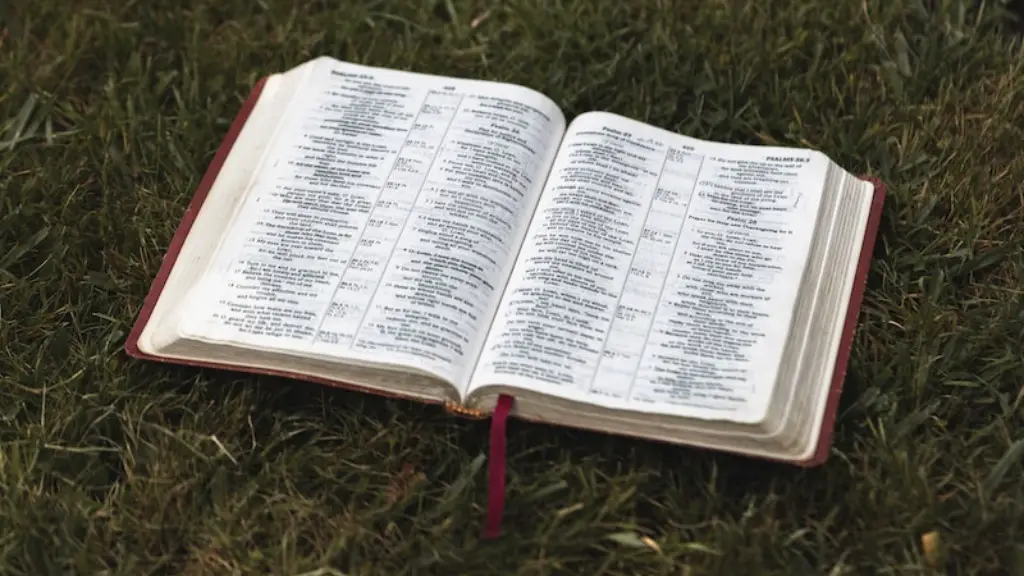What Does Jacob Mean in the Bible?
The name Jacob means ‘supplanter’ or ‘replace’ and is derived from the Hebrew word ‘Akev’ which means leg or heel. It’s believed that the name was given to Jacob due to the story of his birth. According to the Bible, Jacob was born grasping the heel of his twin brother Esau, as if he was eager to supplant his brother’s place in line.
The Historical Context Behind the Meaning of Jacob
A further understanding of the name Jacob and its meaning can be found in its historical and literary context. The narrative of twins fighting for preeminence is one that appears across various religions and cultures. Jacob is not only presented in the Bible as the ‘supplanter’ of Esau but also a father figure for the Israelite nation. This makes his idiosyncratic strength and his never-ending acts of charity highly important in the development of a great nation.
Symbolism of the Name Jacob in the Bible
The name Jacob is loaded with symbolism and to this day is an emblem of strength, resilience, faith and courage in adversity. When Jacob was dispatched to Laban’s house in Haran he had to face tremendous challenges and hardships, but never gave up and was always able to find a way to come out the other side.
Jacob is consequently known as a symbol of holding on to faith and working hard to achieve ones goals. His story is one of never giving up, even when faced with daunting challenges.
Jacob as a Role Model in Christianity
Jacob is seen in Christianity as a role model and has been venerated by some. During the Middle Ages, Jacob was regarded as a great holy man and even seen as a kind of saint. He was lauded for his courage to face temptation and his unwavering faith in the face of suffering.
Jacob in the Contemporary World
Jacob is still a popular name today. In both Muslim and Christian communities, people continue to name their children Jacob in the hope of them inheriting Jacob’s strength and courage.
The name Jacob is also still associated with spunk, resourcefulness and humbleness. This is demonstrated in typical phrases and sayings such as, ‘to take a page out of Jacob’s book’, meaning to approach an obstacle with strength and resilience.
Jacob’s Adversaries in the Bible
Jacob faced many adversaries in his lifetime and often faced them with courage and insight. His most famous and longest-standing adversary was his twin brother Esau; his birth touched off an adversarial relationship between the two. Jacob’s other adversaries in the Bible include Pharaoh and the shepherds of Shechem.
Jacob’s most famous victory was his battle with the angel of God in Genesis 32. In this tale, Jacob wrestles with the angel in the night until he is blessed and the angel gives him a new name – Israel. This is a prime example of Jacob’s resourceful nature and his strength to endure divine challenges.
Jacob’s Role in Jewish Traditions and Culture
Jacob has made a lasting impression on Jewish culture. His life is celebrated in multiple religious festivals and holidays. Passover and Hanukkah commemorate his journey to the Promised Land and his struggle against Esau.
Jacob has also extended his legacy to the Bible and literature. His life is the focus of many stories and poems, a testament to his legend and the impact he has had on generations of children and adults alike.
Jacob’s Profile in Christianity and Islam
Jacob’s profile is also found in other religions, notably in Christianity and Islam. Jacob’s favorite son, Joseph, is venerated in both and the pair feature prominently in both religion’s histories and teachings. There are countless prayers dedicated to Jacob and Joseph in both Christianity and Islam, testifying to the breadth of Jacob’s influence.
Conclusion
The name Jacob is highly symbolic, embodying strength, resilience and courage. Jacob’s actions and characteristics has enabled him to become a role model in Christianity and Islam as well as a figure of importance in Jewish traditions and culture. His story is an attractive one, captivating religious and non-religious readers alike and to this day, people name their children Jacob in hopes of them inheriting his spirit and fortitude.


